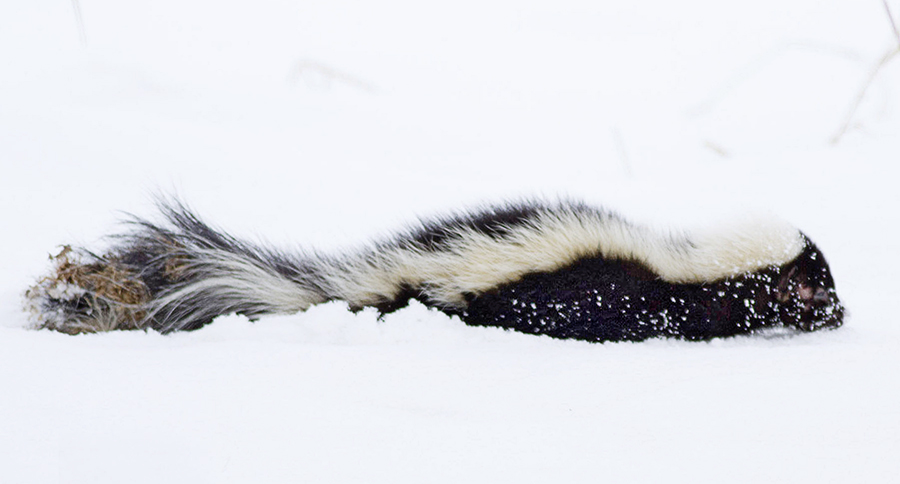Thanks to their distinctive and pungent defensive mechanism, skunks have earned a bad reputation. Most assumptions that we make about them are based on falsehoods, misinformation and a lack of knowledge. But once you learn more about skunks, you realize that they can be funny, clever, curious animals. They are highly adaptive and opportunistic. They learn fast and remember well, especially when it comes to finding food and shelter. This means that effective skunk control in cities like Oshawa is essential.
Skunk Spray
Skunks are best known for their pungent spray. This is their most effective defensive mechanism against predators, and when attacked or frightened, an adult skunk can spray up to 25 feet. A high concentration of skunk spray can cause nausea, vomiting and eye irritation. At lower concentrations, it merely smells really foul. Skunks do not spray without warning. They will stomp their feet, raise their tail and hiss or squeal. If the predator does not heed this warning, they will have to deal with the foul-smelling consequences.
Appearance
The most common skunk found in Canada is the striped skunk (Mephitis mephitis). It is easily recognizable by its distinctive black and white striped markings and can weigh up to 12 pounds. The natural lifespan of a skunk in the wild is relatively short and they usually only live for two to four years. Skunks have very poor eyesight but they make up for this with their excellent sense of smell and hearing.

Skunks stay active throughout winter, but can sleep for long periods.
Diet
Skunks favourite foods include berries, beetles, grasshoppers, eggs, grubs, small rodents, and frogs. But they don’t only restrict themselves to easy prey. They also like to eat snakes, wasps, honey bees and will even attack beehives to get their honey fix. They do not stockpile food for the winter and, unfortunately, an easy and appealing source of food for them in the colder months is garbage. A steady supply of which can be found around houses and this makes nesting near people a very attractive option for these animals.
Skunk Habits
Throughout the year skunks are most likely to be spotted on your property during the evenings and early morning hours. They do, however, become less active in winter and spend more time sleeping in their dens. But they do not hibernate and still need to leave their dens to forage, especially after prolonged cold spells or if they have been snowed in for a while.
Skunk Dens
Skunks don’t restrict themselves to one den and move to different sites during the year. You might not have skunks on your property in summer but this does not mean that they won’t move in for winter. Skunks are more than capable of digging their own dens but they prefer to look for nice snug spaces that someone else has made. In urban areas they have easily adapted to living alongside people and the space below your porch, deck or garden shed can provide the ideal spot for a den.
Skunk Control
Since we provide a good source of food and shelter for skunks, especially in the winter, it is important to always be on the lookout for skunk activity on your property. With skunks, prevention is always better than cure. The most effective form of skunk control on your Oshawa property is to bury heavy wire mesh in the ground around your house, shed and deck. This will prevent skunks from burrowing underneath your property to make a cozy winter den. While it is not impossible to bury the mesh during winter, it is far easier to complete this job in fall, before the ground freezes.
If you want to know more about skunk control or suspect you might have a skunk living on your Oshawa property, call Skedaddle Humane Wildlife Control. We will send out a qualified technician to carry out a full property inspection, remove any skunks and ensure that your home is protected from further skunk activity by blocking off all wildlife entry points.



